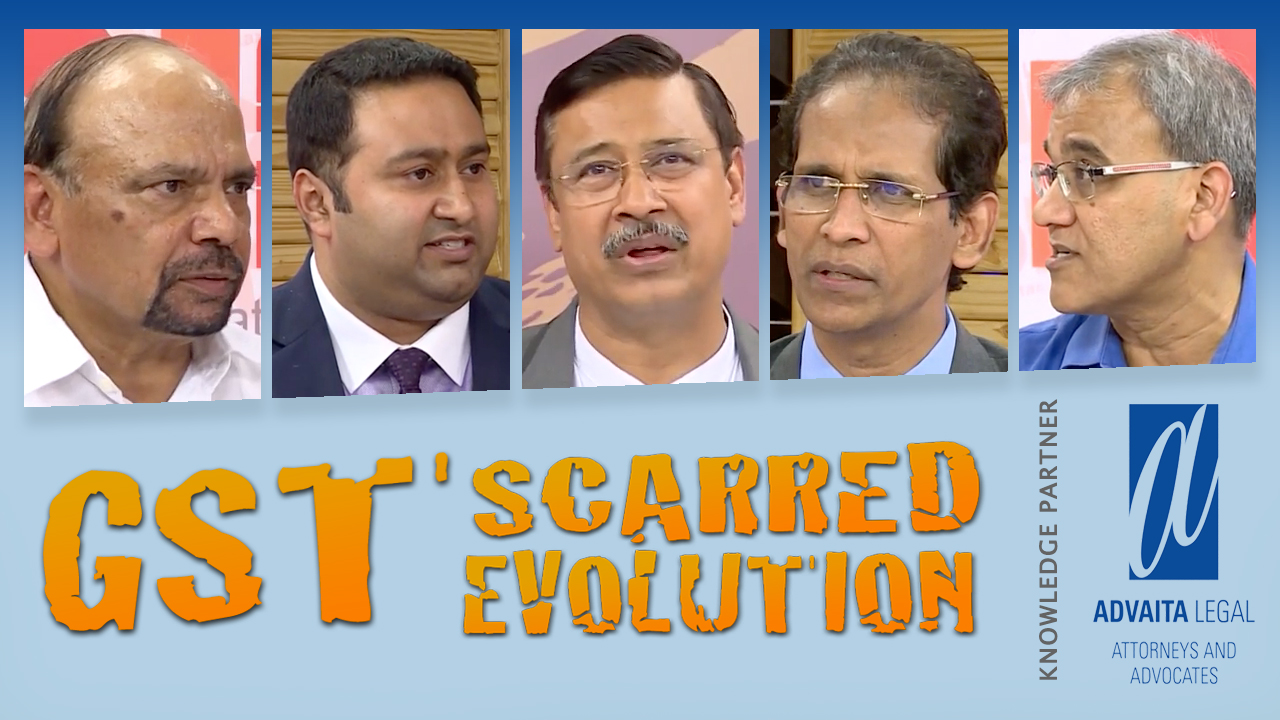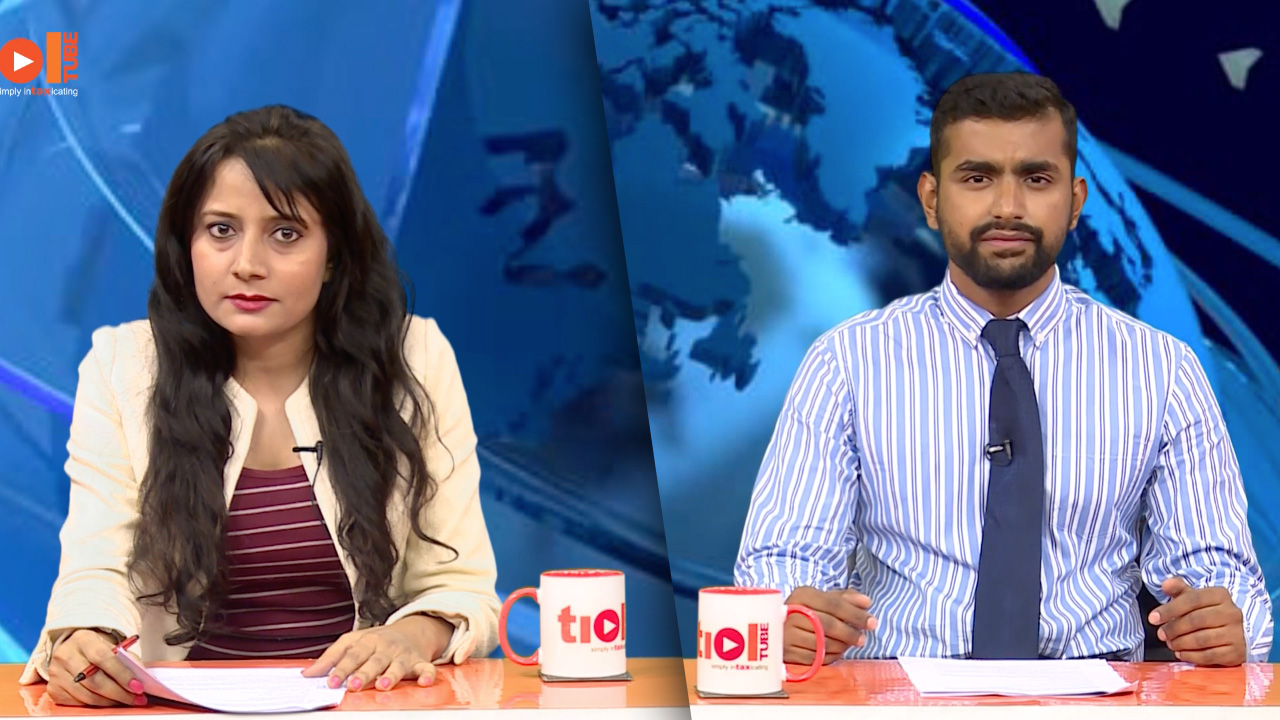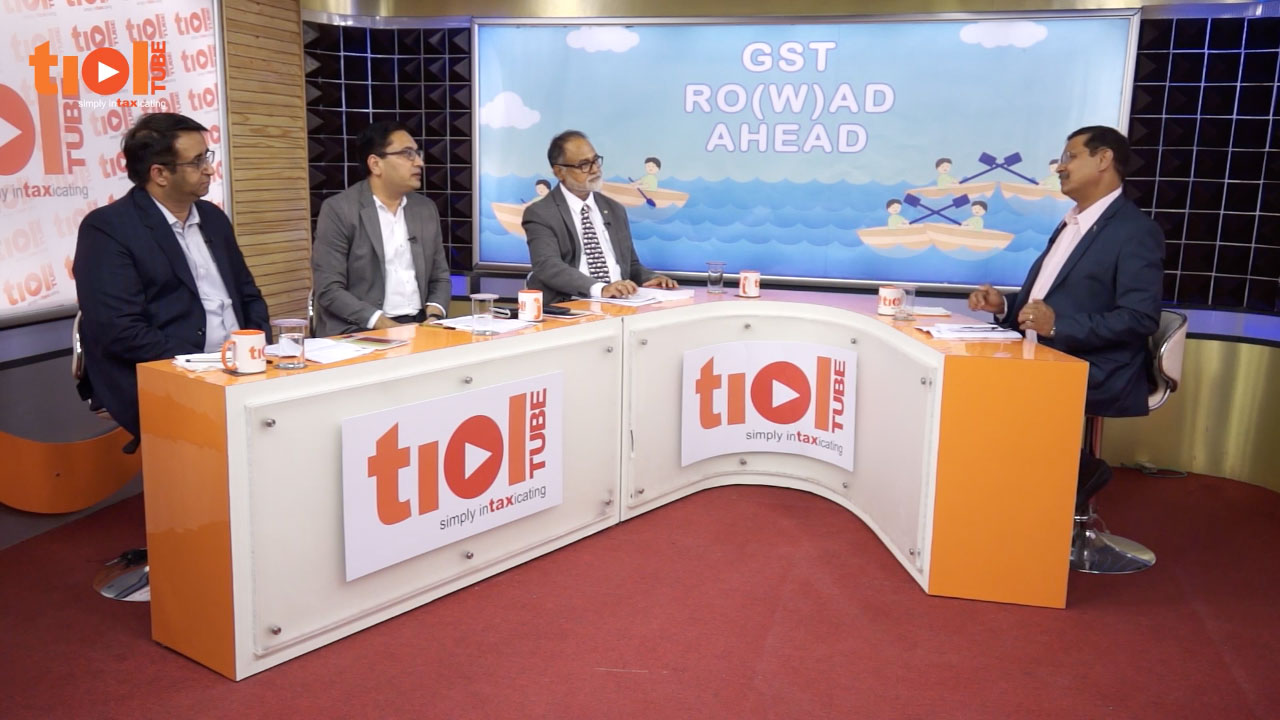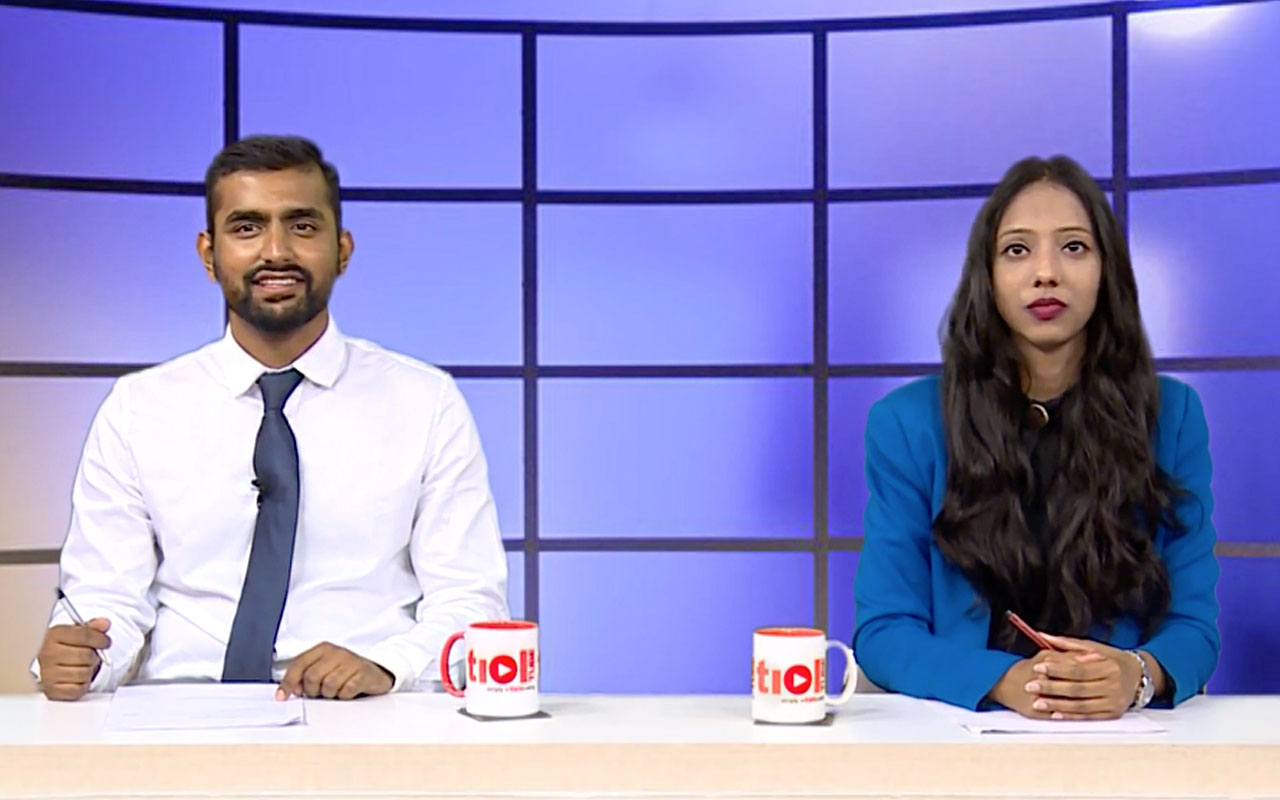SERVICE TAX
2018-TIOL-3253-CESTAT-MUM
Tops Security Ltd Vs CCE & ST
ST - Appellants providing "Security Agency Services" and "Commercial Training and Coaching Services" - Investigation by DGCEI revealed that the appellant was charging service tax from customers and the amounts received were inclusive of service tax; however, the service tax paid was not commensurate with the amounts received during the corresponding periods - SCNs issued and demands confirmed along with penalties - matters being adjourned since March 2015, matter finally heard in July 2018 when appellant appeared and submitted that they have deposited the entire amount of tax due and they were not in agreement with the reconciliation undertaken by the department - AR submitted that exercise of reconciliation had been undertaken pursuant to order dated 20.07.2017 of the Bench and it was evident that the appellants had short paid tax; that the challans produced do not bear the stamp of the bank in which the said amounts have been deposited; bank statements are not the proper documents for payment of taxes; that on the basis of same facts and investigation, CESTAT Delhi had already upheld the demands and penalties; that the Delhi High Court - 2015-TIOL-2751-HC-DEL-ST had refused to extend the benefit of 25% penalty since the same was not paid within 30 days of the order; that all the appeals should, therfore, be dismissed.
Held: Appellants were receiving from their clients the payments inclusive of the service tax amount but were not depositing the same; that they were also not filing ST-3 returns regularly as required under the FA, 1994/STR, 1994; that the plea advanced of financial hardsip, for not depositing the tax, if entertained, then not only the scheme of indirect taxation will be impacted but the entire mechanism of fair trade and commerce will collapse; that the amounts collected as tax from the customer/client are not the money in the hands of the taxpayer but only held in trust by the said taxable person for the period and is to be deposited with revenue in the manner as prescribed by the taxing statute; that by not depositing the said amounts in the manner as have been provided by law, appellants have misappropriated the funds held by them in trust for their personal gain and should not be allowed the plea of financial hardship; Revenue has fairly complied with the directions of Tribunal by reconciling the payments made against the demands and after such reconciliation also large amounts still need to be recovered from appellant - appellants were collecting service tax amounts from customers/clients but not depositing the same with exchequer and were rotating the amounts for their personal gains, they were also guilty of not filing the returns on due date to declare their tax liabilities and hence they have definitely suppressed the details of the tax collected and payable to the exchequer - demands made invoking the extended period are justifiable and for the same reasons penalty u/ss 76, 77, 78 is rightly imposed - benefit of s.80 cannot be extended because no bonafide reasons for invoking the section has been put forth - no merits in any of the appeals, hence dismissed: CESTAT [para 6, 8.1, 8.4, 9.1, 9.5, 9.6, 10]
- Appeals dismissed: MUMBAI CESTAT
2018-TIOL-3252-CESTAT-MAD
Karur Vysya Bank Ltd Vs CCE
ST - The assessee is engaged in providing banking & other financial services - The Department alleged that the assessee charged Dormant Account Charges from customers - The Department opined that such charges were includible in the gross value of taxable service - Duty demand was raised for various periods, with interest & penalties u/s 76, 77 & 78 - On appeal, the Commr.(A) confirmed the demands while setting aside penalty imposed u/s 76.
Held: The bank is not providing any service to the customer by levying such charges - The customer was in any case not operating the bank account for a considerable period leading to imposition of dormant charges - The account holders are not receiving any additional services or benefits - Hence dormant charges are simply a penalty imposed on account holders - Banks need constant rolling of money & deposits and keeping accounts inoperative does not help their cause - Hence the same cannot be made part of the value of taxable service: CESTAT (Para 1,5.1-6)
- Assessee's appeal allowed: CHENNAI CESTAT
2018-TIOL-3251-CESTAT-MAD
ITC Ltd Vs CGST & CE
ST - Assessee filed two refund claims under Notfn 41/2007-ST being the service tax paid for service provided by a CHA in relation to goods exported by them - The first refund claim for the quarter ending January to March 2008 was originally filed before the Hyderabad Commissionerate - The same was returned to the assessee for filing before the proper officer - On the basis of result of verification report submitted by Superintendent of Central Excise, Mettupalayam Range and after perusal of the refund claim, the original authority came to the conclusion that the refund claim for the quarter ending January to March 2008 is time-barred as the same was initially filed before the Hyderabad Commissionerate, and the date of filing before Hyderabad Commissionerate has to be considered for computing the limitation - The second ground for rejection was that the assessee cannot claim refund based on the percentage of production of each unit - The main contention put forward by assessee is that they have not been issued a SCN proposing to deny the refund claim - Thus, they were prevented from putting forward their defense for establishing their case - A notice is a right of the party to enable him to know the grounds for rejection of the refund claim so as to arm himself to defend the case - It is the foundation of any lis in taxation proceedings - Following the decision in Goodwill Sales Pvt. Ltd. and also appreciating the facts of the case, the rejection of refund claim without issuance of SCN cannot sustain: CESTAT
- Appeals allowed: CHENNAI CESTAT
CENTRAL EXCISE
2018-TIOL-3257-CESTAT-MUM + Case Story
Essel Propack Ltd Vs CCGST
CX - Rule 2(l) of CCR, 2004 - CSR can be considered as input service since included within the definition of "activities relating to business" - credit of service tax against payment made to M/s Shree Kalamadevi Charitable Trust for imparting training to students of under-privileged section of society in discharge of Corporate Social Responsibility (CSR) is admissible - Impugned order set aside and appeal allowed: CESTAT [para 6.1 to 6.4, 11, 11.1]
- Appeal allowed: MUMBAI CESTAT
2018-TIOL-3256-CESTAT-BANG-LB
Wipro Ltd Vs CCE
CX - The assessee is an industrial unit engaged in manufacturing articles - During the period of dispute, it availed Outdoor Catering service for its employees - The Department contested such availment on grounds that during the period of dispute, the scope of Rule 2(l) of CCR 2004 had been narrowed to exclude Outdoor Catering Services - Earlier when the matter came to the Tribunal, it was referred to the present larger bench to determine eligibility to avail Cenvat credit on such input.
Held: The dispute pertains to period after 2011 - Outdoor catering service was valid input service prior to 01.04.2011 - Need for exclusion arises only if services are otherwise covered by the definition - The legislature in its wisdom excluded certain services from 2011 when they are otherwise covered by the main definition clause - To interpret the input clause in a manner so as to hold that the services have direct or indirect nexus with assessee's business, would defeat legislative intent - It is well settled that legislative intent cannot be defeated by adopted an interpretation of law which runs contrary to legislative intent - Moreover, the Budget Speech of the Finance Minister dated 28.2.11 stated that a clear definition of 'input service' is being provided to clarify which services are eligible for credit & which are not - Primarily the service should be first covered under the definition of 'input service' and once the service is not covered due to exclusion clause irrespective of the fact whether the cost of service has been taken as expenditure in the books of accounts does not render the services as an admissible for credit - In this regard, food is mainly for personal consumption of the employee & cannot be interpreted in any other way - Who bears the full or partial cost of the service is immaterial - Therefore, Outdoor catering service is ineligible for cenvat credit post 01.04.2011: CESTAT (Para 1,7.1,7.2)
- Assessee's appeal dismissed: BANGALORE CESTAT
2018-TIOL-3255-CESTAT-MAD
Nissan Motor India Pvt Ltd Vs CCE
CX - The assessee company is engaged in manufacturing Motor cars & parts thereof - It availed Cenvat credit on inputs, capital goods & input services - The assessee informed the Department that to facilitate the simplification of manufacturing activities in India, it sold all machinery & inventory to M/s Renault Nissan Automotive India Pvt. Ltd. - The business change scheme accorded only to transfer of assets while the liability rested with the assessee - Later, the assessee surrendered its registration & became non-functional - It then claimed refund of unutilized Cenvat credit - However the Department rejected the refund claim & such findings were upheld by the Commr.(A).
Held: It is seen that as per the business scheme change agreement between the parties, there are no terms & conditions regarding transfer of Cenvat credit - The liabilities were retained by the assessee - The assessee also surrendered the registration & became non-functional - Further considering the decisions cited by the assessee, it is seen that the assessee is eligible for refund of balance Cenvat credit in such circumstances - Hence the rejection of credit is unjustified: CESTAT (Para 1,7)
- Assessee's appeal allowed: CHENNAI CESTAT
2018-TIOL-3254-CESTAT-DEL
Bridgestone India Pvt Ltd Vs CGST, CC & CCE
CX - The assessee company is a leading manufacturer of tyres & tubes - It sold tyres to original equipment manufacturers as well as in the replacement market - Duty demand is paid on the transactional value to various markets - The assessee also provides quantity discount to dealers on periodic basis - Such discounts are notified to the dealers in the beginning of each quarter during the year - If a dealer achieves the sales targets, the assessee provides discount to them by issuing credit notes to dealers - During the period of dispute, the assessee claimed refund of duty paid in excess on the discount amount, which is returned to dealers in the form of credit notes - Such refund was rejected on grounds of unjust enrichment - Such findings were sustained by the Commr.(A).
Held: The assessee declared Cenvat credit receivable in its financial statements for the relevant FYs, under the head of Current Assets - Hence while keeping provision of such refund in books of accounts, the assessee also proved transparenct in transactions - Hence it can be seen that the burden of duty was not passed down to the customers by the assessee & has in fact been borne by itself - Hence the assessee is entitled to seek refund of the excess duty paid on discounts returned by them to their dealers in the form of credit notes - The O-i-A in challenge is quashed: CESTAT (Para 1,2,9,10)
- Assessee's appeals allowed: DELHI CESTAT
CUSTOMS
2018-TIOL-3250-CESTAT-BANG
Swadeshi Imports And Exports Vs CC
Cus - The assessee company filed bills of entry for clearance of 'First quality Oryx unpolished marble slabs' - On examination of the goods, it was found that the goods had been mis-declared as unpolished marble slabs while the goods were actually polished slabs - Also, in 8 crates examined out of 42, the goods were found to be in excess quantity - Hence the Department rejected the valuation declared by the assessee and proposed re-valuation u/r 5 of the Customs Valuation Rules 2007 - The goods were also confiscated as per Section 111(d) & 111(m) of the Customs Act 1962 - Such findings were upheld by the Commr.(A) in part, who reduced the fine & penalty.
Held: The assessee imported polished marble slabs & filed bills of entry declaring them as unpolished marble slabs - Hence the mis-declaration is proven & so the confiscation 111(d) & 111(m) - Moreover, the Department served an SCN proposing to re-determine the declared value - However, the assessee took over two months to reply - Hence the valuation was correctly re-determined by the Department - However, there is no authority vested with the Tribunal to make a complaint against the assessee or direct the lower authorities to file such complaint for mis-representation of facts - Hence the appeals are dismissed & the O-i-A in question merits being upheld: CESTAT (Para 1,4-5.4)
- Assessee's appeals dismissed: BANGALORE CESTAT
2018-TIOL-3249-CESTAT-MUM
Shaik Mohammed Javed Vs CC
Cus - Since the appeal has been filed after amendment to section 129E of the Customs Act, 1962, therefore, deposit of the requisite amount in accordance with section 129E of the Customs Act, 1962 is a pre-condition to entertain the appeal by the Tribunal for hearing and disposal -Defect memo was issued by the Registry directing the appellant to comply with provisions of s.129E of the Customs Act, 1962 but the appellant had failed to produce proof of mandatory deposit - Issue is no longer res integra and is settled by the judgments of the Delhi High Court and Bombay High Court in Anjani Technoplast - 2015-TIOL-2568-HC-DEL-CUS and Haresh Nagindas Vora - 2017-TIOL-1205-HC-MUM-CUS - Bench does not find any substance in the contention of the appellant seeking stay of the order and dispensing with the mandatory deposit prescribed in amended section 129E of Customs Act, 1962 - appeal is dismissed: CESTAT [para 3 to 6]
- Appeal dismissed: MUMBAI CESTAT |










